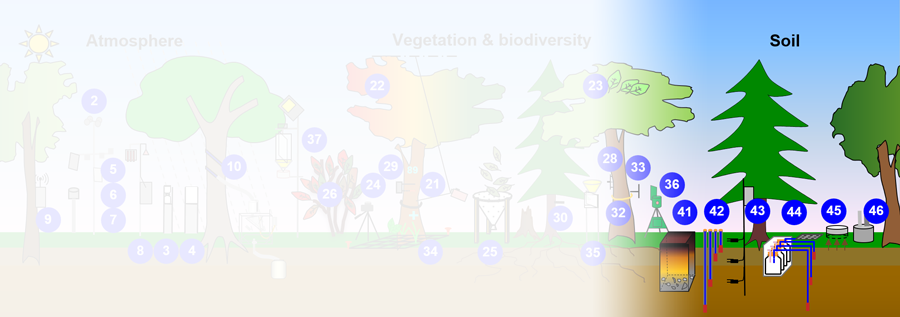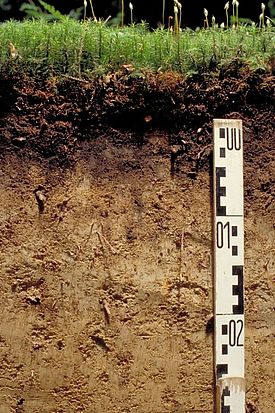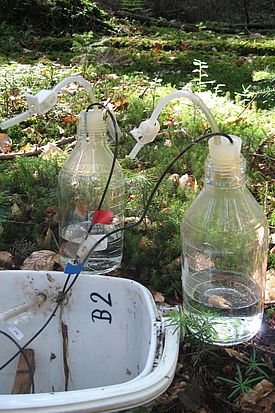Soil is an important component of forest ecosystems. It provides nutrients and water indispensable for tree growth and functioning. Atmospheric pollutants that are deposited into the soil are harmful to soil organisms and plants above a certain concentration. Atmospheric deposition can accelerate soil acidification. This not only leads to nutrient losses, but can also increase the concentration of acid cations (e.g., aluminum). depending on tree species, these have a toxic effect on roots, whose growth they may inhibit.
We use soil profiles (41) to assess the chemical and physical state of the soil matrix and a grid to evaluate spatial soil variability. In order to record potential changes in soil chemistry, we collect the soil solution (44) with lysimeters on selected LWF sites. The soil water is continuously extracted with these instruments, then analysed in the laboratory.
Carbon dioxide (CO2), methane (CH4) and nitrous oxide (N2O) contribute to global warming. Forest soils can act as sources or sinks of these greenhouse gases. In order to estimate their contribution to the overall gas balance, we measure gas exchange (45) between soil and atmosphere with airtight measuring chambers. We also carry out experiments to assess the influence of drought and elevated temperature on soil respiration (46), i.e., CO2 exiting the soil and entering the atmosphere.
We measure soil water continuously in different soil depths with two methods: we use sensors to measure the volumetric soil water content (43) and tensiometers (42) to assess its availability for plants. These two data sets allow us to calculate water balances and water flows, and hence to assess whether and to what extent a forest stand suffers from drought.


